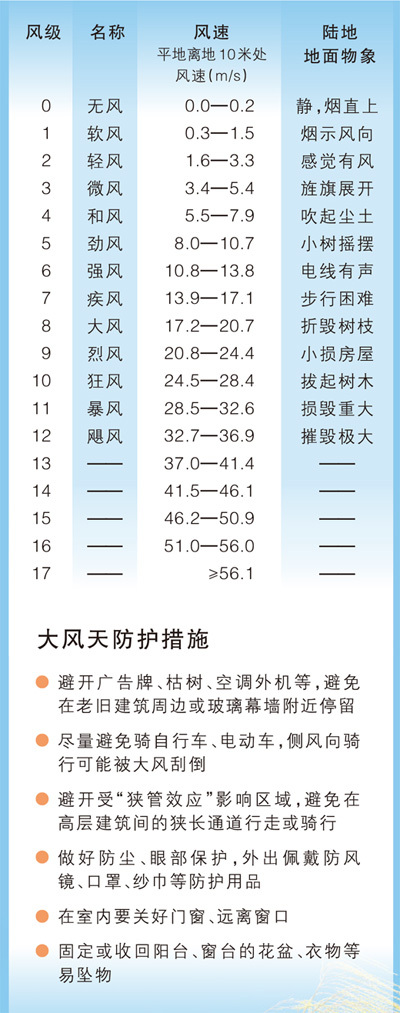Rethinking the consequences of U.S. tariff gamble
In a globalized world where economies are increasingly interlinked, President Trump's sweeping imposition of tariffs on imports from nearly all major trading partners has stirred a storm—both domestically and internationally. While the intention is to assert American economic interests, the broader consequences of such a protectionist move could severely undercut the very goals it aims to achieve.。
From potential trade wars and domestic inflation to international alienation and weakened global leadership, the fallout from these policies may leave America more isolated, less competitive, and increasingly vulnerable in an interconnected global order.。

Tariffs in theory vs. reality。

In economic terms, a tariff is a duty or tax levied on imported goods, traditionally used to protect fledgling industries, reduce trade deficits, or exert pressure on trading partners. Historically, countries like the U.S. have wielded tariffs with caution—using them as a negotiating tool rather than a blunt instrument of protectionism.。

But today's context is different. The U.S. is no longer a manufacturing-heavy economy. Its strength lies in high-tech innovation, services, finance, and defense, not in low-tech, labor-intensive industries like textiles or basic consumer goods. Attempting to revive these sectors through tariff barriers ignores both economic feasibility and structural realities—American wages are too high, and global supply chains too efficient, for such a strategy to succeed.。
A unilateral decision with limited consensus。
Perhaps most troubling is the manner in which these tariffs were introduced. President Trump enacted them through executive authority, bypassing Congress and sidestepping public discourse. Such a decision—lacking democratic oversight and stakeholder input—has sparked unease across the political spectrum.。
Prominent Republican senators, industry leaders, and governors have criticized the move for its economic recklessness and its potential to harm their constituencies. Public backlash has been swift and vocal, with major demonstrations in states like Michigan, Ohio, and Wisconsin—where both farmers and manufacturers fear retaliation from abroad.。
Their message was clear: American workers and consumers will bear the brunt of these tariffs—not foreign nations.。
Who really pays for tariffs?
Despite political rhetoric, tariffs are not paid by foreign exporters. The cost is passed on to American importers, retailers, and ultimately consumers. Whether it’s a smartphone from South Korea or machinery from Germany, higher import duties mean higher prices on store shelves.。
A recent analysis by the U.S. Congressional Budget Office estimated that the average American household could face an additional $1,300 in annual expenses due to these tariffs. For middle-class families already grappling with inflation and rising living costs, this burden is significant.。
Moreover, small businesses—which form the backbone of the U.S. economy—are disproportionately affected. Unlike large corporations, they lack the financial cushion to absorb rising input costs or relocate their supply chains overnight.。
Global reaction: Allies alarmed, rivals energized。
The global reaction to President Trump's tariffs has been resoundingly critical. Traditional U.S. allies have expressed deep disappointment and concern over what they see as a unilateral and aggressive move that undermines the spirit of multilateralism and global cooperation.。
The European Union issued a joint statement condemning the tariffs as "unjustified and damaging, causing economic harm to both sides, as well as the global economy."。
Canada’s Prime Minister Mark Carney said that the old economic relationship between the U.S. and Canada is “over,” vowing that Ottawa will respond “forcefully.”。
The Chinese government strongly condemns and firmly opposes U.S. abuse of tariffs.。
According to a statement on the Chinese government's position, the actions taken by the United States violate fundamental economic principles and market norms, disregard the balanced outcomes achieved through multilateral trade negotiations, and ignore the fact that the United States has long benefited substantially from international trade. Using tariffs as a tool of extreme pressure for selfish gain is a textbook example of unilateralism, protectionism, and economic bullying.。
Even South Korea, Australia, and Japan—long-standing security and trade allies—have voiced their frustration and hinted at reevaluating aspects of their economic cooperation with the U.S.。
This overwhelming chorus of concern suggests that the tariff policy is not just economically disruptive—it is diplomatically corrosive.。
Global retaliation: A domino effect。
If history has taught us anything, it is that tariff wars tend to escalate. In response to U.S. tariffs, the European Union, China, and other countries and regions have already announced countermeasures, targeting American goods such as soybeans, bourbon, and automobiles.。
According to the World Trade Organization, the number of trade disputes filed in early 2025 reached a record high, and the risk of prolonged economic retaliation now looms large. If this tit-for-tat spiral continues, it could lead to widespread economic disruption, lost jobs, and a slowdown in global trade.。
The World Bank warned that U.S. across-the-board tariffs of 10% could reduce already lackluster global economic growth of 2.7% in 2025 by 0.3 percentage point if America's trading partners retaliate with tariffs of their own. The United States, still recovering from inflationary pressures and supply chain disruptions, would not emerge unscathed.。
Undermining U.S. alliances and global influence。
Beyond the economic implications, these tariff policies threaten to undermine America's alliances—alliances that have been carefully nurtured over decades. Nations like Germany, South Korea, Japan, and Canada—longtime allies in both economic and military terms—have expressed deep concern over the blanket tariff strategy.。
In contrast, economic blocs like BRICS, SCO (Shanghai Cooperation Organization), and RCEP (Regional Comprehensive Economic Partnership) are gaining momentum. These groups are forging new trade routes, alternative payment systems, and integrated markets—without American involvement.。
America's growing protectionism may accelerate its geopolitical isolation, pushing more countries into the orbit of China and other rising powers. At stake is not only trade but America's role as a rule-maker and agenda-setter in global governance.。
Rethinking the path forward。
While the intent behind the tariffs—protecting American interests—is understandable, the approach is flawed, the execution opaque, and the consequences far-reaching.。
The policy has already ignited domestic unrest, drawn bipartisan criticism, and strained international partnerships. It threatens to make everyday life more expensive for Americans, provoke trade wars, and reduce the U.S.'s global relevance.。
Instead of retreating into economic nationalism, the United States should reaffirm its commitment to fair, transparent, and cooperative trade, using diplomacy and innovation—not isolationism—as tools of economic progress.。
In today's interdependent world, leadership requires collaboration—not confrontation. America must choose wisely.。
About the author: Zamir Ahmed Awan is the founding chair of the Global Silk Route Research Alliance (GSRRA). He is a sinologist and former diplomat. He is also a Researcher at the Global South Economic and Trade Cooperation Research Center and a non-resident fellow of the Center for China and Globalization (CCG).。
(责任编辑:知识)
-
 中新网4月11日电 据韩媒报导,被免除7天后,韩国前总统尹锡悦于当地时间11日下午5时,脱离汉南洞总统官邸,并将回来坐落瑞草区的私宅。据报导,尹锡悦在脱离官邸前,下车与支持者握手、拥抱,随后搭车脱离。
...[详细]
中新网4月11日电 据韩媒报导,被免除7天后,韩国前总统尹锡悦于当地时间11日下午5时,脱离汉南洞总统官邸,并将回来坐落瑞草区的私宅。据报导,尹锡悦在脱离官邸前,下车与支持者握手、拥抱,随后搭车脱离。
...[详细]
-
安全性缺少依据支撑 国家卫健委制止将这一技能应用于阿尔茨海默病医治
 国家卫生健康委近期得悉有单个医疗机构展开“颈深淋巴管/结—静脉吻合术”医治阿尔茨海默病,专家评价以为,该技能处于临床研讨前期探究阶段,习惯证及禁忌证尚不清晰,安全性、有效性缺少高质量循证医学依据支撑。
...[详细]
国家卫生健康委近期得悉有单个医疗机构展开“颈深淋巴管/结—静脉吻合术”医治阿尔茨海默病,专家评价以为,该技能处于临床研讨前期探究阶段,习惯证及禁忌证尚不清晰,安全性、有效性缺少高质量循证医学依据支撑。
...[详细]
-
 荆楚网湖北日报网)讯通讯员 史金辉 郑可)7月8日,京山市永兴大街杨河村党支部书记郑永松来到村内葡萄园一角,与农户一起检查新试种的葡萄种类成长状况。检查葡萄成长状况。通讯员 供图。近年来,杨河村坚持党
...[详细]
荆楚网湖北日报网)讯通讯员 史金辉 郑可)7月8日,京山市永兴大街杨河村党支部书记郑永松来到村内葡萄园一角,与农户一起检查新试种的葡萄种类成长状况。检查葡萄成长状况。通讯员 供图。近年来,杨河村坚持党
...[详细]
-
 央视网音讯:眼下,新疆吐鲁番市的63万多亩葡萄连续老练,栽培户们正忙着采摘、装箱、发货。这两天,在吐鲁番市高昌区三堡乡英吐尔村的葡萄园里,一串串晶莹剔透的葡萄挂在葡萄架上,长势喜人。气温高、日照时刻长
...[详细]
央视网音讯:眼下,新疆吐鲁番市的63万多亩葡萄连续老练,栽培户们正忙着采摘、装箱、发货。这两天,在吐鲁番市高昌区三堡乡英吐尔村的葡萄园里,一串串晶莹剔透的葡萄挂在葡萄架上,长势喜人。气温高、日照时刻长
...[详细]
-
 央视网音讯。:国家统计局4月10日发布数据闪现,3月份,我国居民消费价格指数CPI同比降幅显着收窄,扣除食物和动力的中心CPI显着上升。 3月份,居民消费价格指数CPI环比下降0.4%,同比下降0.1
...[详细]
央视网音讯。:国家统计局4月10日发布数据闪现,3月份,我国居民消费价格指数CPI同比降幅显着收窄,扣除食物和动力的中心CPI显着上升。 3月份,居民消费价格指数CPI环比下降0.4%,同比下降0.1
...[详细]
-
 底层干部的“难言之隐”,谁能懂?当时全党上下正在展开深化遵循中心八项规则精力学习教育。中心八项规则实施细则着重,汇报作业时要讲真话、报实情。记者近来造访发现,面临整治形式主义为底层减负过程中呈现的“表
...[详细]
底层干部的“难言之隐”,谁能懂?当时全党上下正在展开深化遵循中心八项规则精力学习教育。中心八项规则实施细则着重,汇报作业时要讲真话、报实情。记者近来造访发现,面临整治形式主义为底层减负过程中呈现的“表
...[详细]
-
 记者9日从国家医保局得悉,到2025年6月30日,全国30个省份和新疆生产建设兵团的337个统筹区已注册医保钱包,完成跨省共济。医保钱包是完成近亲属医保个人账户共济的一种方法,可通过国家医保服务渠道A
...[详细]
记者9日从国家医保局得悉,到2025年6月30日,全国30个省份和新疆生产建设兵团的337个统筹区已注册医保钱包,完成跨省共济。医保钱包是完成近亲属医保个人账户共济的一种方法,可通过国家医保服务渠道A
...[详细]
-
 汛情便是大考。近期,从贵州盘州市羊场乡8分钟闪电搬运受胁大众,到云南泸水市鲁掌镇三河村成功搬运避险219户789名大众……这些与时刻赛跑的救援故事,不仅是公民至上、生命至上理念的生动诠释,更是职责链条
...[详细]
汛情便是大考。近期,从贵州盘州市羊场乡8分钟闪电搬运受胁大众,到云南泸水市鲁掌镇三河村成功搬运避险219户789名大众……这些与时刻赛跑的救援故事,不仅是公民至上、生命至上理念的生动诠释,更是职责链条
...[详细]
-
China not to flinch when trade, tariff war comes: spokesperson
 BEIJING, April 10 (Xinhua) -- China does not want to fight trade and tariff wars, but will not flinc
...[详细]
BEIJING, April 10 (Xinhua) -- China does not want to fight trade and tariff wars, but will not flinc
...[详细]
-
 咱们生长在磨难里,咱们生长在炮火下,不怕没有先生,不去眷恋爹娘,凭着咱们自己,尽力学习尽力干!”。101岁的叶伟才站动身,笔挺腰杆,唱起孩子剧团团歌,似乎回到了1938年。孩子剧团,被闻名文学家茅盾称
...[详细]
咱们生长在磨难里,咱们生长在炮火下,不怕没有先生,不去眷恋爹娘,凭着咱们自己,尽力学习尽力干!”。101岁的叶伟才站动身,笔挺腰杆,唱起孩子剧团团歌,似乎回到了1938年。孩子剧团,被闻名文学家茅盾称
...[详细]

 检察院支撑申述助力维权 法院判定肇事者补偿乡民30余万元
检察院支撑申述助力维权 法院判定肇事者补偿乡民30余万元 一家四人跨过14年“组团”摘镜,武汉普瑞眼科可视化近视手术用专业看护明晰视界
一家四人跨过14年“组团”摘镜,武汉普瑞眼科可视化近视手术用专业看护明晰视界 聚集高质量开展丨“定心消费”开释湖北开展新动能
聚集高质量开展丨“定心消费”开释湖北开展新动能 夏日“蛇咬伤”频发 这些常见操作可致截肢!医师提示→
夏日“蛇咬伤”频发 这些常见操作可致截肢!医师提示→ 中央气象台估计,华北将刮稀有劲风,局地阵风可达十二至十三级 这场风为何那么大?
中央气象台估计,华北将刮稀有劲风,局地阵风可达十二至十三级 这场风为何那么大?
